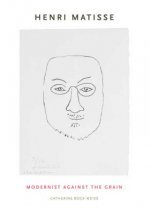
Doručení
Nákupní rádce





Nehodí se? Vůbec nevadí! U nás můžete do 30 dní vrátit
 Dárkový poukaz
V libovolné hodnotě
Dárkový poukaz
V libovolné hodnotě
S dárkovým poukazem nešlápnete vedle. Obdarovaný si za dárkový poukaz může vybrat cokoliv z naší nabídky.
Poet, Public, and Performance in Ancient Greece
 Angličtina
Angličtina
 92 b
92 b
30 dní na vrácení zboží
Mohlo by vás také zajímat


Poetry in archaic and classical Greece was a practical art that arose from specific social or political circumstances. The interpretation of a poem or dramatic work must therefore be viewed in the context of its performance. In Poetry, Public, and Performance in Ancient Greece, Lowell Edmunds and Robert W. Wallace bring together a distinguished group of contributors to reconstruct the performance context of a wide array of works, including epic, tragedy, lyric, elegy, and proverb. Analyzing the passage in the Odyssey in which a collective delirium comes over the suitors, Giulio Guidorizzi reveals how the poet describes a scene that lies outside the narrative themes and diction of epic. Antonio Aloni offers a reading of Simonides' elegy for the Greeks who fell at Plataea. Lowell Edmunds interprets the so-called seal of Theognis as lying on a borderline between the performed and the textual. Taking up proverbs, maxims, and apothegms, Joseph Russo examines "the performance of wisdom." Charles Segal focuses on the unusual role played by the chorus in Euripides' Bacchae. Reading the plot of Euripides' Ion, Thomas Cole concludes that the task of constructing the meaning of the play is to some extent delegated to the public. Robert Wallace describes the "performance" of the Athenian audience and provides a catalog of good and bad behavior: whistling, shouting, and throwing objects of every kind. Finally, Maria Grazia Bonanno stresses the importance of performance in lyric poetry.
Informace o knize
 Angličtina
Angličtina
Kategorie




 Jak nakupovat
Jak nakupovat

























